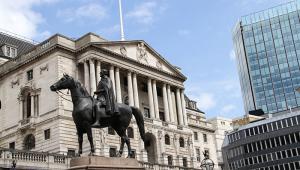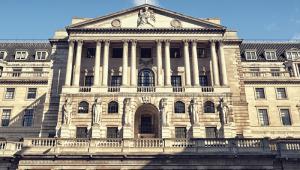Lower interest rates, definitely. Even the cautious members of the Bank of England’s Monetary Policy Committee accept that.
But what else can, and should, be done to tackle the recession? After the shocks of the banking crisis in September and October, a lively debate has opened up in the last couple of weeks between the main parties and among economists.
It took some time for the government, and particularly for Prime Minister Gordon Brown, to admit that Britain is now in a recession (defined as two successive quarters of falling national income).
Brown has always been reluctant to confront bad news, but was urged by Cabinet colleagues, notably the newly returned and highly influential Lord Mandelson, the Business Secretary, to talk about a recession in order to prepare voters for the unpleasant consequences.
The prime minister has made the revival of the banking system his first priority after the virtual freezing up of new loans. Part-nationalisation of several major banks to strengthen their capital bases is only part of the story. As important are the guarantees to the inter-bank market, in the hope of restoring confidence.
None of this will prevent a recession — but supporting the banks is a pre-condition for recovery. Brown also stresses the need for increased global cooperation, not only rescuing banks, easing monetary policy, and refinancing the multilateral lending institutions like the International Monetary Fund (one of the main aims of his recent visit to Saudi Arabia and the Gulf). In many ways, he sees any domestic initiatives as supplementary to these international moves, an add-on rather than a substitute.
The real issue, still unresolved, is not about whether public spending and borrowing rise during the recession. They are bound to do so as a result of a decline in tax receipts caused by the contraction in activity — exacerbated now by the acute problems of the City financial sector and the stagnation in the property market — and a rise in spending on unemployment and related benefits.
As Alistair Darling argued in his Mais lecture, it would be perverse to try to offset these pressures, known as the automatic stabilisers, which help support the economy in times of trouble. To raise taxes or to cut existing spending plans would hit confidence and make matters worse.
The central question now is about what more needs to be done. Should the government change its existing spending and tax plans to provide a fiscal boost? We will have to wait for the Pre-Budget Report later this month for a clearer lead.
Brown and Darling have talked of bringing forward capital spending projects from later years, as is already happening with house building.
This does not mean any change in overall plans but involves a rephasing. It may be possible to accelerate work on housing schemes, but it will be much harder to change the timing on big capital projects with multi-year timetables. The announcement might, however, mean that big programmes like Crossrail, on which construction is due to start within 18 months, will go ahead, despite worries about the availability of private finance.
If the government decides to go further and increase spending above existing planned levels, some sceptics wonder whether the impact will come too late to influence recovery.
There are two main criticisms. First, even those backing a fiscal stimulus argue that it may be better to cut taxes than increase spending, or if spending is to rise, then the best boost may be in the form of higher welfare benefits.
Remember also that in order to head off a Labour revolt over the abolition of the 10p tax rate, Darling announced a rise in income tax thresholds last May, benefiting all basic rate taxpayers, at a cost of £2.7bn. This was for just one year, but is almost certain to be extended.
Second, many economists — and the Tories — warn against a ‘spending splurge’ now. This is partly because they believe that a sharp reduction in interest rates is the best way to stimulate the economy.
But they are also worried about the ratchet effect of raising spending. It will be very hard to claw back extra spending — especially as there is already a very large structural, or underlying deficit.
Admittedly, the government is correct to claim that overall debt levels are low by international standards, and should permit additional borrowing now because of the recession. But the weakness in the Brown/Darling case is that borrowing will be unsustainably high when recovery starts, and requires corrective action. There is a parallel with the situation in 1989/90 when the last recession began, and the size of structural deficit was very similar.
The recession will certainly be unpleasant for the next year to 18 months, but the recovery will also be pretty grim, particularly for the public sector, as spending growth will be very low — whichever party is in power.










